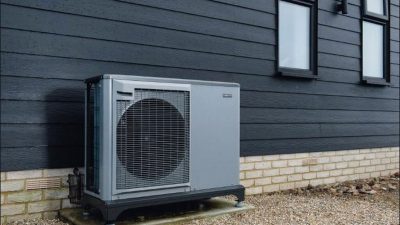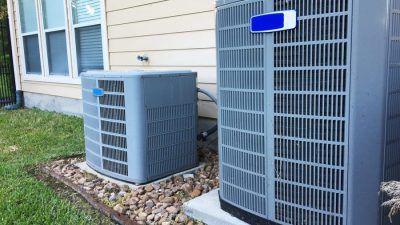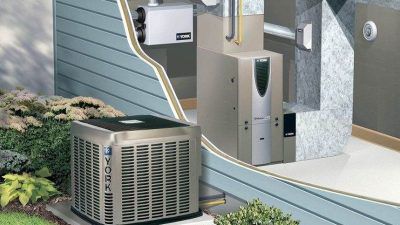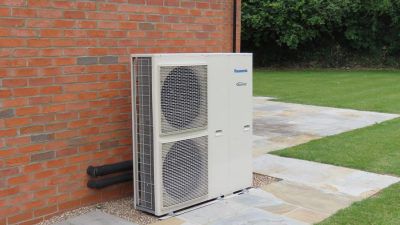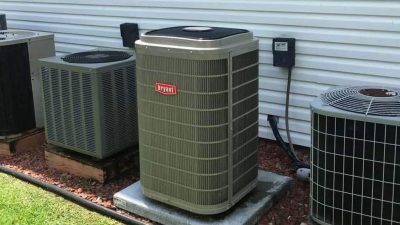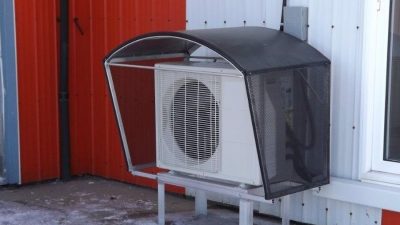Heat pumps are an innovative technology that can provide both heating and cooling to homes and businesses. They work best in climates with mild winters and not too hot summers, but they can be used almost anywhere. So, where do heat pumps work best?
In this article, we’ll explore the various climates where heat pumps excel as well as the advantages they offer over other types of HVAC systems. We’ll also look at some of the features of modern heat pumps that make them attractive to homeowners looking for efficient energy solutions. With this information, you’ll be able to determine if a heat pump is right for you—and the environment!
Heat pumps are becoming increasingly popular due to their ability to reduce energy use while providing comfortable temperatures year-round. If you’re looking for an energy-efficient way to regulate your indoor temperature, a heat pump might be just what you’re looking for. So let’s dive into where heat pumps work best and why they could be the perfect solution for your home or business!
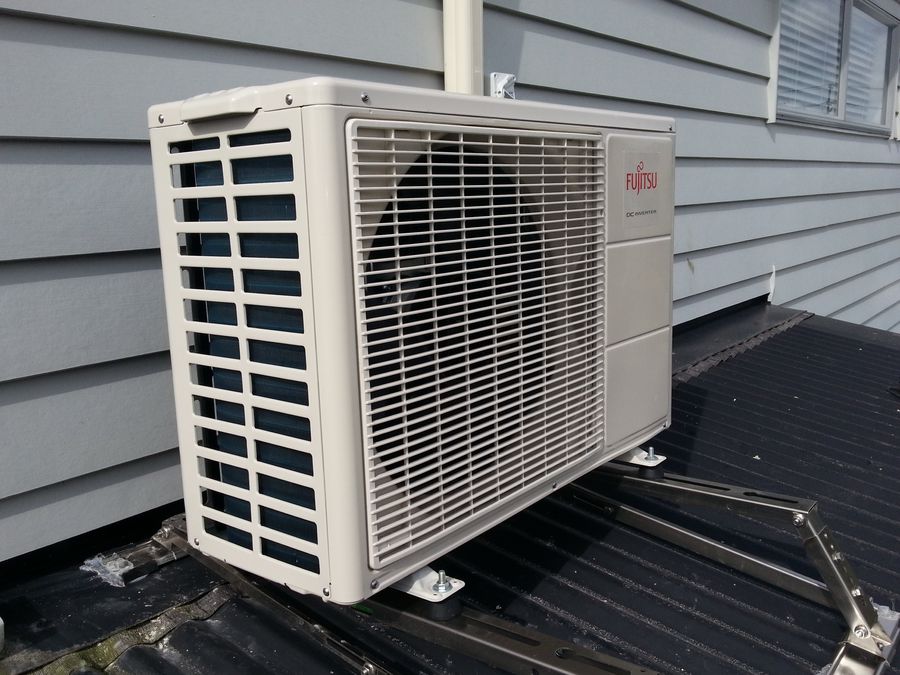
Overview Of Heat Pump Technology
Heat pumps are incredibly efficient pieces of technology that use a process known as heat transfer to move thermal energy from one place to another. This allows for the heating and cooling of air in buildings and other places, making them a great choice for anyone looking to maximize their energy efficiency. Heat pump technology also allows for greater control over operating temperatures and lower operating costs due to the fact that it requires less energy than traditional heating and cooling systems.
This advanced technology works by using a refrigerant or other medium to absorb thermal energy from the outside air before transferring it into the building or area in which it is being used. The amount of energy transferred will depend on the size and type of heat pump, as well as the desired temperature levels. Heat pumps can be used in both residential homes and commercial buildings, ensuring that any environment can benefit from this innovative technology.
What Environments Are Suitable For Heat Pumps?
Heat pumps are most effective in climates where the temperature does not drop too low. They work best in areas where the average temperature remains above freezing, as heat pumps struggle to produce enough heat when it is below this point. This means that if you live in an area with cold winters, a heat pump might not be the best choice for your home.
When considering what environment is suitable for a heat pump, it is important to consider the optimal temperature range for energy efficiency. Heat pumps need to be able to operate within a certain range of temperatures in order to achieve their maximum efficiency rating. If they are operated outside of this range, they will lose energy and become less efficient. Generally speaking, a heat pump should be able to operate efficiently between -13°F and 113°F (-25°C and 45°C).
For homeowners who are looking for an energy-efficient heating system, a heat pump is one option that may fit their needs if their climate falls within these parameters. Heat pumps can provide reliable heating for many years when used correctly and maintained properly. Here are some key points to remember:
- Heat pumps work best in climates with average temperatures above freezing
- Consider the optimal temperature range for energy efficiency
- Heat pumps can provide reliable heating when used correctly and maintained properly * Inspect and clean the outdoor compressor unit regularly
Advantages And Disadvantages Of Heat Pumps
Heat pumps are an efficient and cost-effective way to heat and cool your home. They offer a number of benefits, including energy savings and improved air quality. Heat pump efficiency is one of the main advantages, as they can provide up to four times the amount of energy they use. This means that you can reduce your total energy costs significantly. Additionally, heat pumps are generally easier to install than other heating systems, making them an attractive option for many homeowners.
On the other hand, there are some drawbacks to heat pumps that should be considered before investing in one. The cost of installation can be high due to the complexity of the system, as well as any necessary retrofitting or repairs that may need to be done. Additionally, if you live in a climate with extreme temperatures or in an area with frequent power outages, a backup source of heat may be necessary.
Overall, heat pumps offer many benefits that make them worth considering when looking for ways to reduce your energy costs and improve your home’s comfort level. With proper maintenance and care, these units can last for years with minimal upkeep required. For people looking for an efficient solution for their heating needs, heat pumps are definitely worth considering.
Cost-Benefit Analysis Of Installing A Heat Pump
Heat pumps are becoming increasingly popular for their energy efficiency and cost savings. Heat pumps work best in areas where temperatures don’t dip too low, as this can cause the heat pump to struggle to keep up with heating needs. Before deciding whether or not a heat pump is right for you, it’s important to do a thorough cost-benefit analysis.
The cost of installing a heat pump will depend on the size of your home, as well as any labor costs associated with the installation. Once installed, however, you can start to enjoy the benefits of a heat pump right away. Depending on your area and how you use your heating system, you may be able to save up to 50% on your energy bills when compared to traditional heating systems such as furnaces or boilers. Additionally, many modern heat pumps come with special features that can help reduce energy consumption even further.
When weighing the costs and benefits of installing a heat pump, consider how long it will take you to recoup the cost of installation through energy savings. For most homeowners, that time frame is usually three to five years; however, depending on usage and location it could be much less than that or even more than that. If you’re looking for an environmentally friendly option that can help lower your utility bills over time, then investing in a heat pump could be a great solution for you!
Where Is The Best Place To Install A Heat Pump?
Heat pump installation is an important investment, and it pays to know where to get the most out of your heat pump. To maximize efficiency, heat pumps should be installed in areas that experience moderate temperatures year-round. This way, the pump can keep up with any temperature fluctuations without running too often or too hard. |
The best places to install a heat pump are typically climates with mild winters and hot summers, such as the South and West coasts of the United States. In these areas, the temperature rarely drops below freezing so the heat pump won’t have to work as hard to maintain comfortable indoor temperatures. This also helps you save money on energy bills since it reduces wear-and-tear on the system over time. |
It’s also important to consider placement when installing a heat pump. Placing it in an area that gets plenty of direct sunlight will help increase its efficiency since it helps absorb more warmth from outside air. Additionally, make sure there is ample space for airflow around the unit for maximum cooling performance. Lastly, nearby trees or bushes can provide shade and protection from wind which can save you money on energy costs by reducing the need for additional cooling during hot days.|
When considering where to install your heat pump, consider all factors carefully—from climate and location to placement—in order to get the most benefit out of this worthwhile investment. The right combination of these factors can ensure optimal efficiency while providing long-term benefits such as lower energy bills and improved comfort levels inside your home or business.
Choosing The Right Size And Type Of Heat Pump
Choosing the right size and type of heat pump is essential to getting optimal performance. Heat pumps come in many sizes, so you’ll need to make sure you select a unit that’s the right size for your home or business. Heat pump selection should be based on the climate and energy efficiency requirements of the building. The size of the space needs to be taken into consideration when sizing a heat pump, as a unit that’s too large or too small won’t be able to effectively regulate temperatures.
When it comes to types of heat pumps, there are many different models to choose from depending on your climate and specific needs. For example, if you live in an area with cold winters, then a geothermal heat pump may be best for you due to its ability to provide efficient heating during the winter months. Hybrid systems are also becoming increasingly popular for those who want both heating and cooling capabilities in one system. Heat pumps can also come with additional features like humidity control and air filtration capabilities.
It’s important to do your research when selecting a heat pump – talk with local professionals who can help you determine which size and type will work best for your home or business’s needs. A professional can provide valuable insight into selecting the right model for your situation and help ensure that you get the most out of your investment.
Maintenance And Troubleshooting Tips
Heat pumps are complex machines that require regular maintenance and care to keep them running efficiently. To ensure your heat pump is working properly, it’s important to take the time to troubleshoot any issues and follow up with necessary repairs. With regular maintenance, heat pumps can provide years of reliable service. Knowing the basics of heat pump maintenance and troubleshooting can help you save money in the long run.
When it comes to heat pump maintenance, there are a few key areas to pay attention to. First, inspect the exterior unit for any physical damage or debris that could hinder its performance. Next, check the coolant levels and make sure they are at the correct levels for optimal efficiency. Finally, look for signs of wear and tear on the motor or other parts that may need replacing. Heat pumps should also be cleaned regularly and inspected for worn out parts or components that need to be replaced.
In addition to regular inspections, it’s important to know how to troubleshoot any problems you may encounter with your heat pump. Check all electrical connections first, as loose wires can lead to poor performance or even a complete system failure. It’s also important to monitor energy usage and make sure your system is running efficiently by checking air filters regularly and scheduling preventive maintenance services when needed. If any major repairs are necessary, call an experienced technician who is trained in both installation and repairs of heat pumps.
Conclusion
In conclusion, heat pumps are an efficient way to heat and cool your home. They can be beneficial in both mild and cold climates, depending on the size and type of unit you choose. Heat pumps offer cost savings over traditional systems, with improved efficiency and lower monthly bills.
When deciding where to install a heat pump, it’s important to consider the size of the space that needs to be heated or cooled, as well as the local climate. Installing a unit in an unsuitable environment can result in inefficient performance and high energy costs. It’s also important to consider maintenance and troubleshooting when selecting a heat pump, as regular upkeep is essential for optimal performance.
Ultimately, if you’re looking for an efficient heating and cooling system for your home, a heat pump may be the solution for you. With proper installation, maintenance, and consideration of environmental factors, you can enjoy cost savings while staying comfortable all year long.

